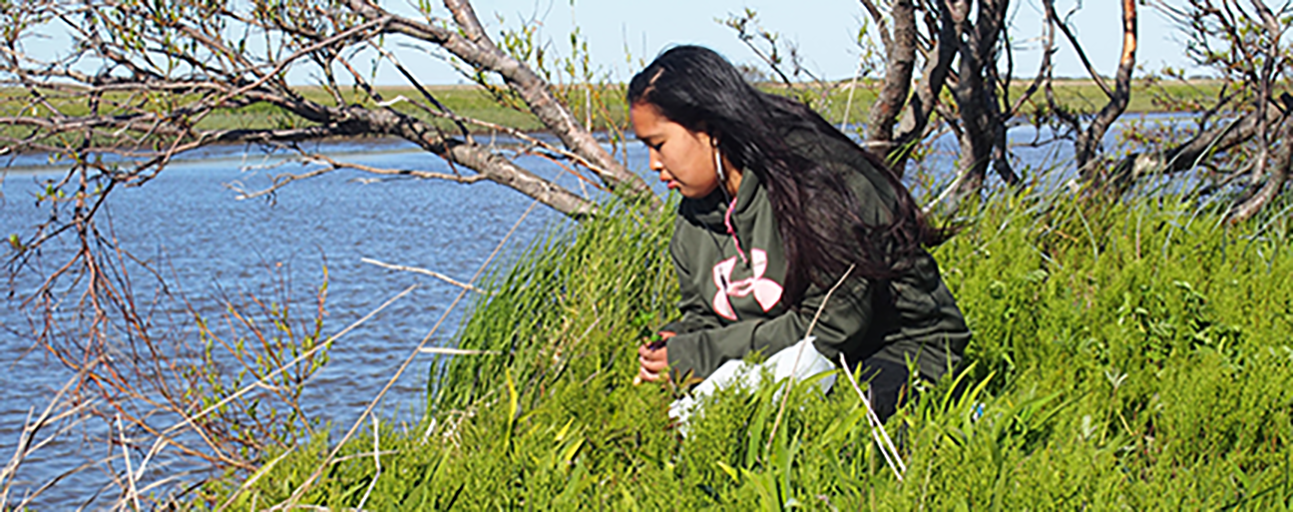
Support Tribal Sovereignty and Environmental
Justice In Alaska’s Yukon-Kuskokwim Delta
Native Organizers Alliance Action Fund
(September 16, 2023) — Indigenous Yupik, Cup’ik, and Athabascan communities in Alaska are fighting back against what would become the largest pure gold mine in the world. The development and operation of this mine would threaten their ways of life and crucial food sources.
If we don’t stop it, the Donlin Gold Mine would operate for more than 27 years, destroying critical salmon spawning habitats and threatening human health by contaminating the region’s lands and waters with dangerous levels of poisonous mercury and arsenic.
A pit lake holding toxic water from the mine, a waste rock mountain that could leak acid rock drainage, and tailings (mine waste) would remain in perpetuity. A tailings spill could cause catastrophic harm to the region.

During the Trump administration, the US Army Corps of Engineers and the Bureau of Land Management did not follow the law and rubber-stamped federal permits for the Donlin Gold Mine. Both agencies disregarded severe environmental, subsistence, and human health concerns raised by Tribes, residents of the region, and many others including the regional Tribal health organization and the state health department.
People rely on subsistence fishing in the area, with salmon making up more than 50% of people’s annual diets. Threats to salmon endanger people’s lives as well as people’s cultural and Alaska Native identity.
In addition, the project would disturb permafrost, releasing harmful greenhouse gases stored beneath the ground, and would include infrastructure impacts such as a new port, a port expansion, new roads and airstrips, a 200-mile barge transportation corridor, and a methane gas pipeline more than 300 miles long to power the mine.
Sign now to support Tribal sovereignty and environmental justice: Tell the US Army Corps of Engineers and the Bureau of Land Management to revoke Trump-era permits for the Donlin Gold Mine, and instead begin a thorough and Tribal-led environmental review process for the project.

Petition to the United States Army Corps of Engineers and the Bureau of Land Management, elevating demands from Tribes in the Yukon-Kuskokwim Delta:
We request a thorough and Tribal-led environmental review process for the Donlin Gold Mine in Alaska.
We request the Army Corps of Engineers (Corps) revoke the existing 404 permit. The Corps’ 404 permit allowing the filling of wetlands was issued in violation of federal environmental laws including the Clean Water Act and the National Environmental Policy Act and should be revoked.
We request the Bureau of Land Management cancel the pipeline’s right of way lease. The pipeline’s right of way was issued in violation of federal environmental and subsistence laws including the NEPA and the Alaska National Lands Interest Conservation Act (ANILCA).
We request the Corps conduct a new Supplemental Environmental Impact Statement (SEIS). The existing EIS fails to consider key significant adverse impacts including the possibility of a tailings dam failure that would cause catastrophic environmental harm to lands and waters that Tribes and communities depend on for their continued existence and ways of life.
During the Trump administration, the US Army Corps of Engineers and the Bureau of Land Management did not follow the law and rubber-stamped federal permits for the Donlin Gold Mine. Both agencies disregarded severe environmental, subsistence, and human health concerns raised by Tribes, residents of the region, and many others including the regional Tribal health organization and the state health department.
The project would destroy critical salmon spawning habitats and threaten human health by contaminating the region’s lands and waters with dangerous levels of poisonous mercury and arsenic. People rely on subsistence fishing in the area, with salmon making up more than 50% of people’s annual diets. Threats to salmon would endanger lives as well as cultural and Alaska Native identities.